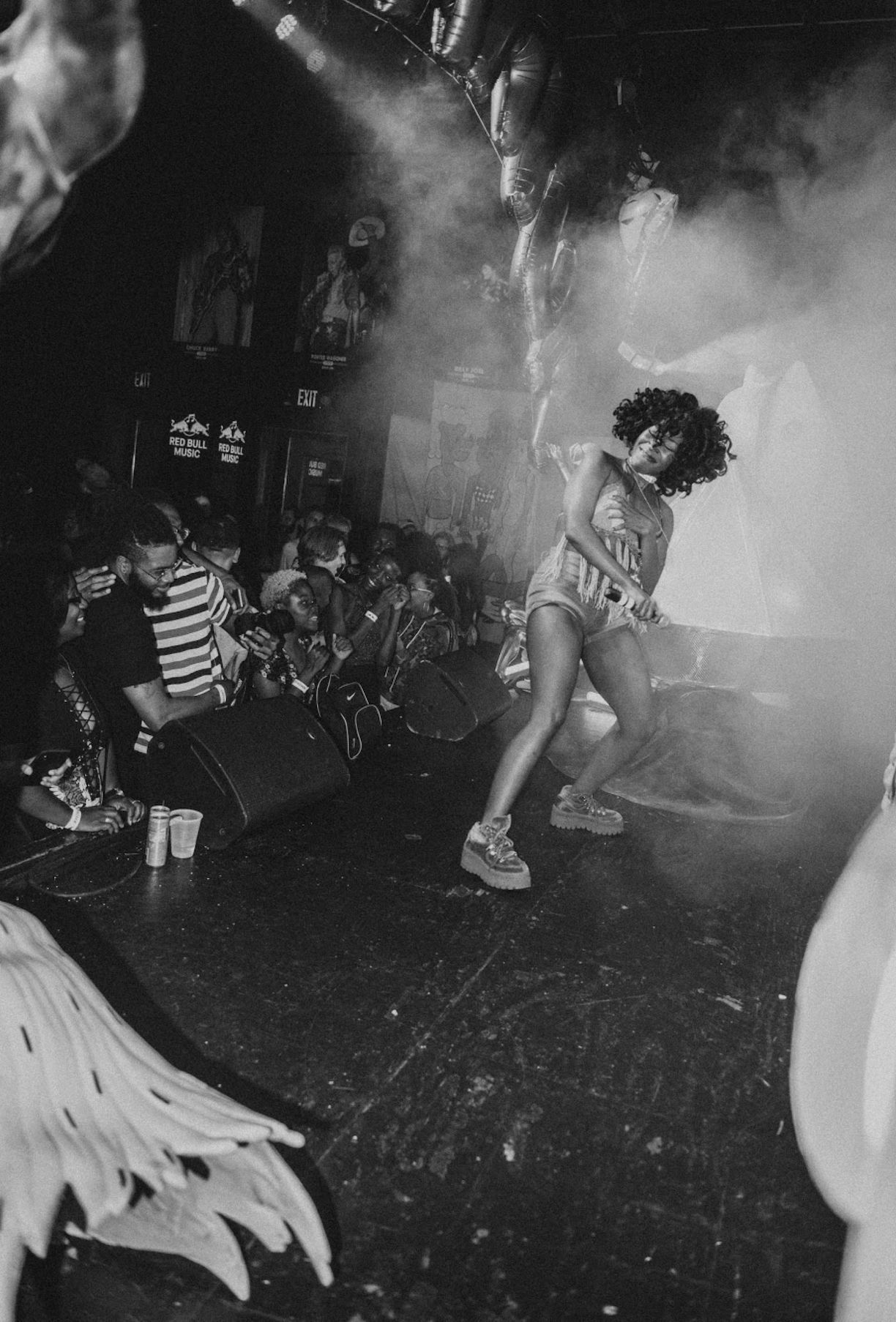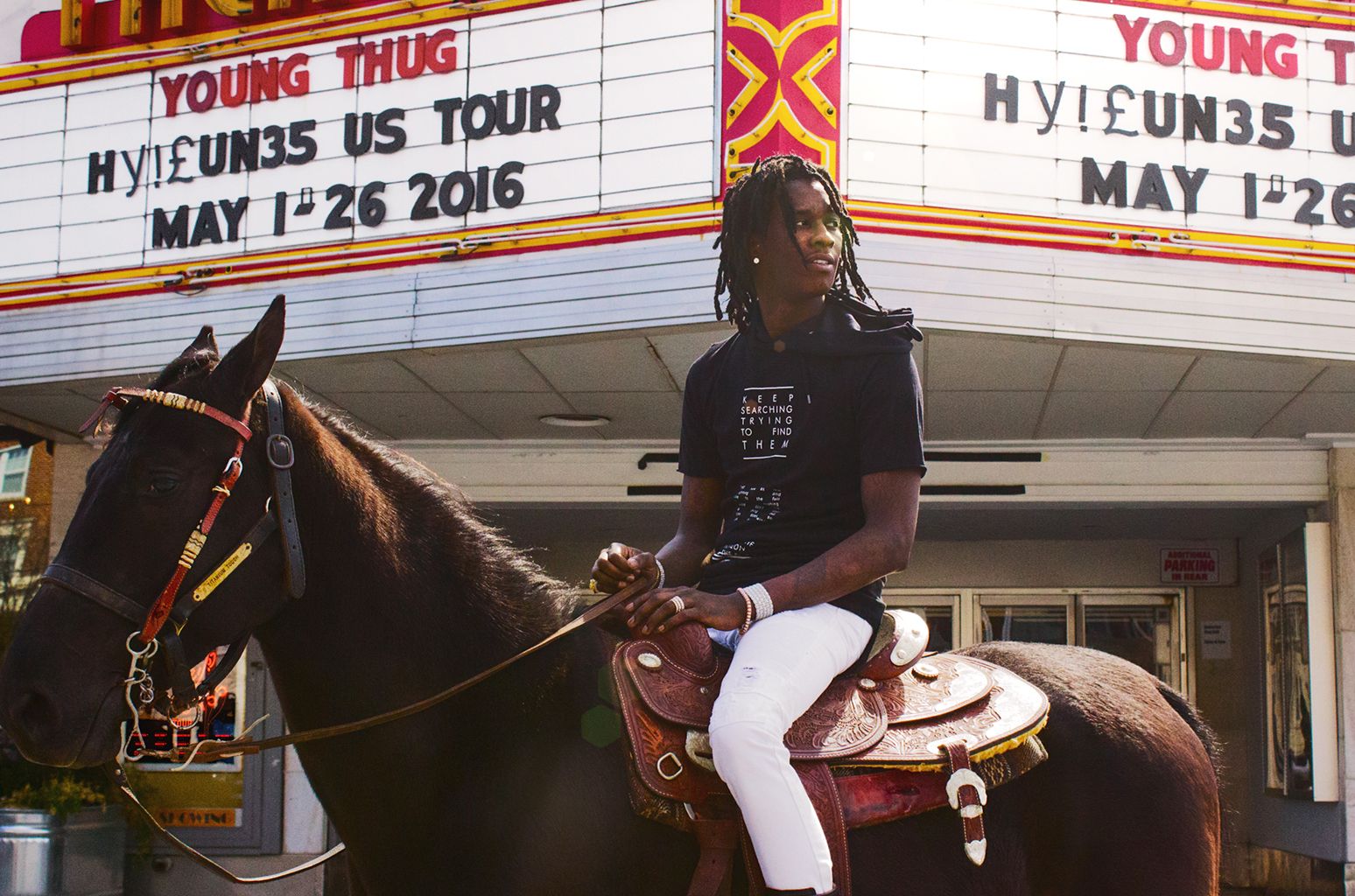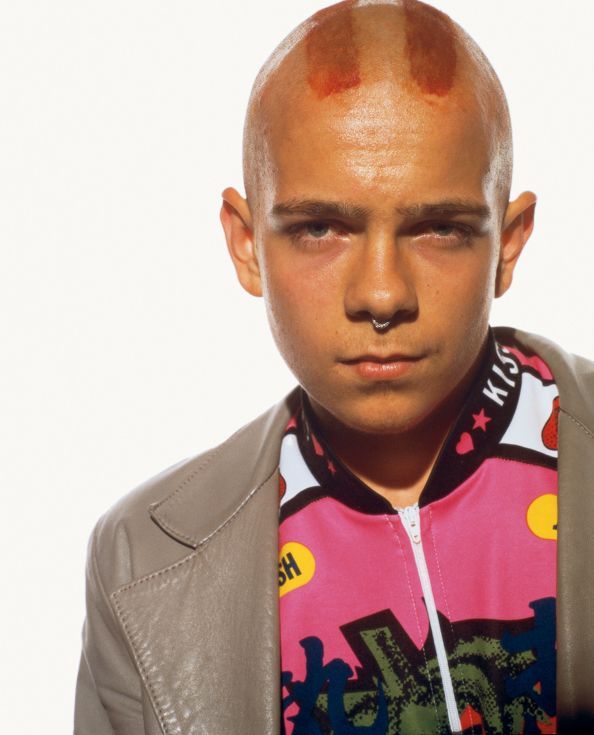UNIIQU3: The revolution will be on Instagram Live
|Octavia Bürgel
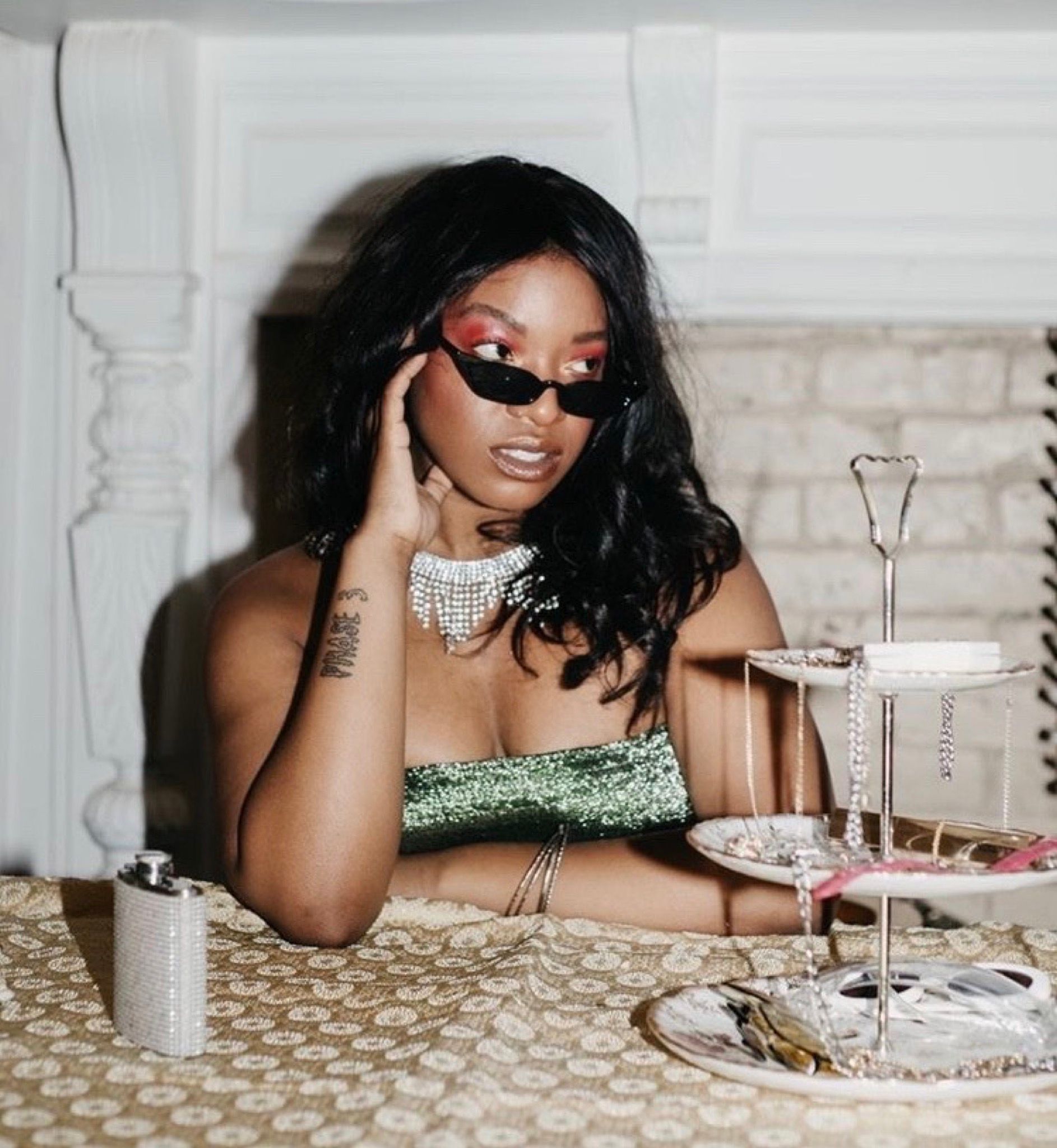
“If it wasn’t for Jersey, man I wouldn’t be shit!” Cherise Gary belts, voice torqued and autotuned, on her thunderous 2017 club anthem LIKE ME. The Newark native, who records and performs under the moniker UNIIQU3, is a luminary of the New Jersey Club sound that developed from regional innovations in electronic dance music across many Midwestern and East Coast American cities in the 1980s and 1990s. The high-velocity beats, intricate industrial rhythms, and reverberating lyrics–– clipped and looped back on themselves–– that define the genre, have mechanical origins in hip-hop production as much as they do the sonic syncopation of the drumline. Though audiences and subjects ultimately diverge, there is an audible relationship between Jersey Club and genres such as Trap, due to a shared source in Crunk music––fans of Trillville will be pleased to locate the squeaky-spring sample used on “Cutty” interspersed through notable Jersey Club tracks–– and a mutual emphasis on textured production over prose.
Since making a name for herself in Newark’s party scene as a teenager, Gary has grown into her self-proclaimed, and yet undisputed title as New Jersey’s Club Queen. Now she’s one of the genre’s most sought-after producers. This past summer, she billed on major festival line-ups at Coachella and Afropunk, where dancers wearing neon flanked her on stage, dropping it low in sync. But despite achieving international acclaim, the queer ballroom scene that first nurtured her musical development continues to be a major source of inspiration and pride for the DJ, who views the dance floor as a site of liberation for people of all backgrounds.
This weekend, UNIIQU3 honors the “sacred space” of the dance floor with a new release. A sparkling and succinct ode to the newly bygone past of nights spent downtown, “7 Day Weekends” is the club banger we needed to invigorate our struggle against the prevailing winds of uncertainty. We spoke to the artist just ahead of the release on club culture in the time of Corona.
Interview: Octavia Bürgel
Tell me about your new track, “7 Day Weekends.” You wrote and recorded it this past week while you were in quarantine?
Yeah, and it’s exactly about this situation. Everything is closed now, and there’s kind of no foreseeable end at the moment, especially here in New Jersey and New York City. I woke up–– my sleep schedule has been crazy–– at 6am, and I just started making this song, and that’s it. It was really organic. I made the beat first, the instrumental, and I used some sounds off of Splice–– it’s this dope app that you can download music with.
All we know are 7 day weekends, some of us. We party Monday through Friday and then we still have stuff going on throughout the weekend, so every day was like a Saturday–– going out to DJ, or going into the city to hang with my friends and do something productive and creative. I miss that feeling. I was just fucking around and vibing out. The song made me miss those weekends, and that’s how I came up with the lyrics. I wanted to keep it minimal and very chill. Sometimes lyrics try to force you what to think, and me being a Dance music producer, I always take into consideration letting my songs have space to breathe. I felt like getting what I wanted to say across– just, “I miss those seven day weekends–” was good enough. And let people use the rest of the song to picture those memories for themselves.
Your sound is so animated, it forces you to dance. Regardless of the lyrical content, you are going to have fun. How did you first come to the club scene?
I was kind of born into it. Jersey House music is a big part of Dance music–– DJs like Frankie Knuckles and Tony Humphries would come to Jersey to party at this infamous club, Zanzibar. The love of dance music is born into kids here– we just took that history and made it our own, which is Jersey Club. If you’re from Jersey and you don’t know what Jersey Club is, then you’re not from Jersey. Everybody knows what it is, even if they don’t know that it’s called Jersey Club. They’ll be like, “Oh you do that running man thing?”
Aside from having been born into it, I was always dancing at parties. I used to go with my friends, because I was a dancer, like, a ballerina. So I would go and really dance– we would have the routines. I was part of teenage street promotional party teams, we would get together to throw parties that we would break off change for. Like a house party, except we would get YMCAs and actual halls. I don’t know how these grown ups trusted us?
The first clubs that I was introduced to in my late teens in New York were DIY queer spaces like The Spectrum, or one-off venues where parties were happening, like you describe. It was always so amazing to me, but I also remember being like, “Who let us in here?”
Right? So you get it. We were savvy, fun, creative kids, and we loved to dance and party, so by any means we needed to throw them. We came up with teams to host the parties, but I was like, “there’s no female DJs, though.” If there were, they were all older than me. I was 18 or 19 years old and I felt like, “you know what, I’m going to DJ, because all the dudes are DJing and there’s no girls.” After I did that, I just made it my business to represent the ladies.
My party promotional team was all female. We would go around and throw all of the parties for the girls. All of the promoters, all of the photographers were girls–– and we were teenagers. That eventually evolved into Jersey Club going international. I used to feel sad that I had left some of that community behind, because I was so close to those girls. But now I get to do it large-scale, and I can connect with communities all over the world who are aligned with my mission and my musical interests.
You came up partially in the GHE20G0TH1K scene, too, right?
I did. I’m really close with Venus [X], she actually was the first woman that I really saw as a mentor. She took me to my first gig outside of the U.S., in Toronto. I was so appreciative of her for that. Those were some of the first underground parties that I would sneak into, and it really expanded my plate for music. I would always upload my Jersey Club tracks on SoundCloud, but New Jersey is kind of a bubble. I knew what was up in Jersey, I knew Baltimore clubs, and some in Philly. But the dance music in New York City was so international. It opened up my ears, and GHE20G0TH1K was the first place that I could go to hear it in person and not on SoundCloud.
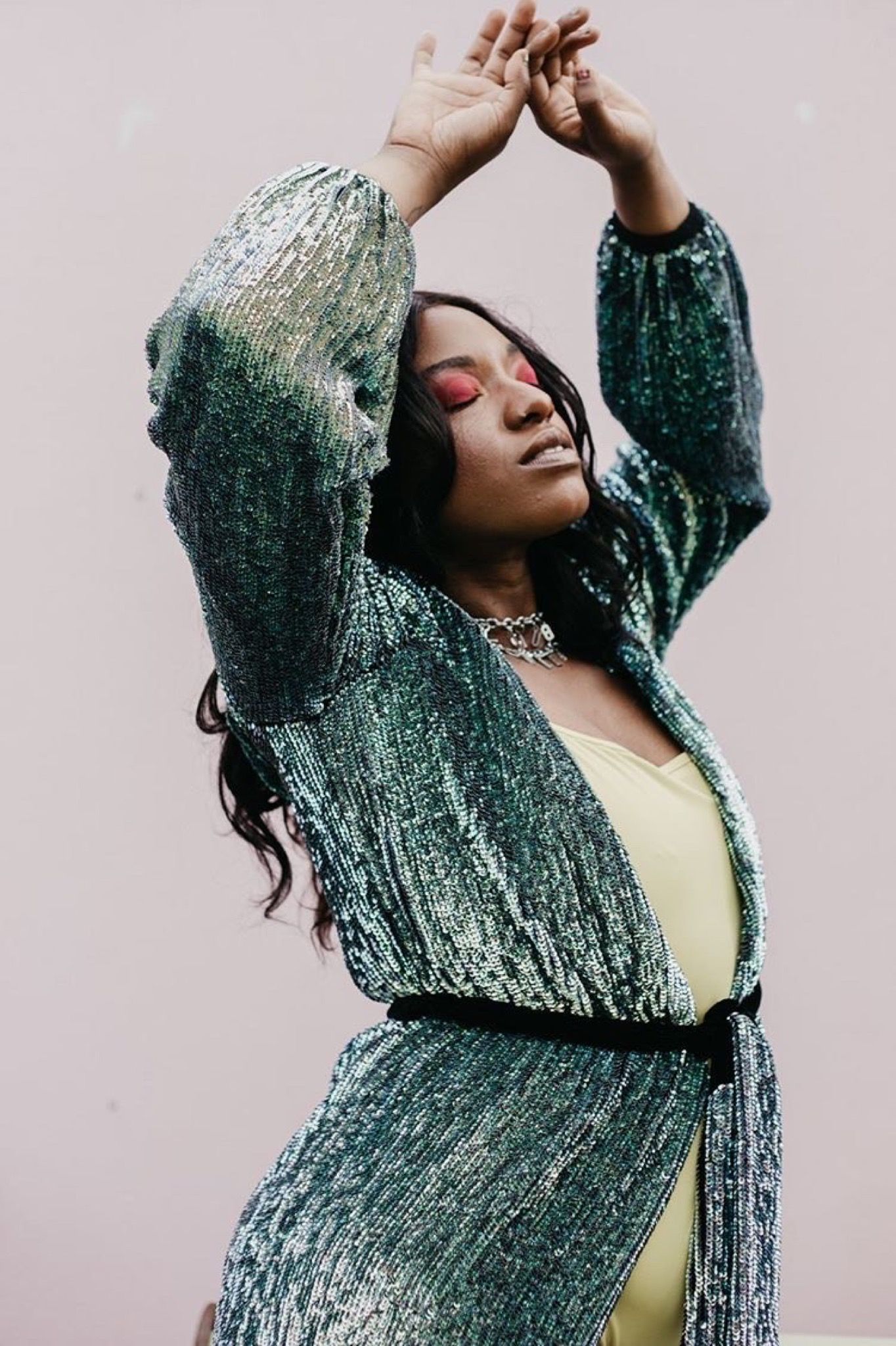
You’re a self-taught DJ and producer, how did you first begin to develop those skills?
I played piano and did Concert Band, so I was already musically savvy, just never with a software. As a pianist in Concert Band, they were always trying to put me on the cymbals and the glockenspiel, and I wasn’t a drummer! That was not my thing. You would think, because I’m a DJ, that maybe I’d be good with the hands, but nah. When I got into production, I was like, “This is like a whole concert band inside a laptop! This is everything!” It was dope, because Concert Band had played me.
When I first took an interest, I felt like I had to prove myself as a DJ before I could get into production. My male peers in Jersey actually really helped me out, because they saw how good of a DJ I was. DJ Sliink, who is a very notable Jersey Club producer, gave me my first sound kit via AIM. And as far as the softwares, I was just on YouTube. That was when YouTube was first really poppin’ off–– anything could go viral. I would just crack stuff on there. I was experimenting. Not a lot of people were producers like now when I started, and not everybody had a laptop. When I got one it was a big deal. It was definitely a lot of dudes, but my male peers did really help me. And I just got better over time by collaborating with people and being submerged in the club. I was a dancer, too–– I feel like dancers make the best producers because you know what you want to move to.
When I was coming up in Jersey I used to DJ at this club called The Globe, and the resident DJ there at the time was Mike Q–– before he really became the super internationally known legend. I used to fill in for him because my sound man did the sound there. I would go with him and he’d let me practice. That’s how I got introduced to ballroom culture, and seeing all of the girls n’ boys there really put me in a different category than the guys who I had been around before; they were never gonna go to that club. It’s funny though, and it’s a fact: dancers in Jersey–– whether straight, gay, whatever–– know how to Vogue. You will see the most hood-of-the-man do a dip in Jersey.
“I feel like dancers make the best producers because you know what you want to move to.”
The confidence in your music is so upfront. I’ve had Bbymutha on repeat lately, too, and even though your sounds are totally different, she, similarly, just comes right out and says it––
Listening to Bbymutha is a sermon. I can’t wait until she’s a pastor in the New Age after Coronavirus.
There are so many diverse voices in club and hip-hop genres, and I find it really empowering to put on my headphones and dance around to someone gleefully talking about popping their pussy––
Instead of having a dude tell you to do it because you look hot. It resonates differently when a girl says, “I’m a bad bitch imma go pop my pussy,” versus when a dude says “you a bad bitch, now go pop your pussy for me.”
Would you say that you have a different ethos for the way you approach DJing versus production or songwriting?
Definitely. I’m super confident when I go on for my DJ sets now, compared to before. That’s usually because of the energy that I get from my community in the building. I’m always nervous, but I feed off the energy, so I’m always super confident.
In the studio, I feel like I’m more experimental. It’s funny, I named myself UNIIQU3 because there weren’t that many women DJing and producing, and I felt like I was doing something different. My name is Cherise so everyone was like, “DJ Cherry” and I was like, “Come on, y’all. That’s such an easy giveaway.” I’m very unique, and I feel like I’m always trying to push myself production-wise to grow in certain areas–– whether it’s mixing, trying different jump patterns or taking what I like in a different genre and putting it into my work. I’m super naive, and I feel like I’m less confident in the studio, but I’m more open to going with the flow.
[With writing,] sometimes I’ll mumble lyrics first then other times I’ll be like, “Oh I have these lyrics, I’m going to make a song for them.” Depending on the vibe–– if they’re mellow lyrics then I want to make an instrumental to match it, or if it’s hype, like a rap verse, then I want to make a song that I can lay it on. Sometimes it’ll just come straight instrumental and then I gotta figure out what I can write on it. I’m always trying to say stuff that’s super fun or confident. But I’m trying to get into showing more of myself and my feelings in my music, because that’s how people get to know me better. I’m trying to add more quotables. In my previous production–– Jersey Club is really known for fast beats and obnoxious samples–– you can’t really be like, “When UNIIQU3 said, ‘let’s go!’ I felt that!” you know what I’m saying? So I was like, “let me come up with some lyrics.”
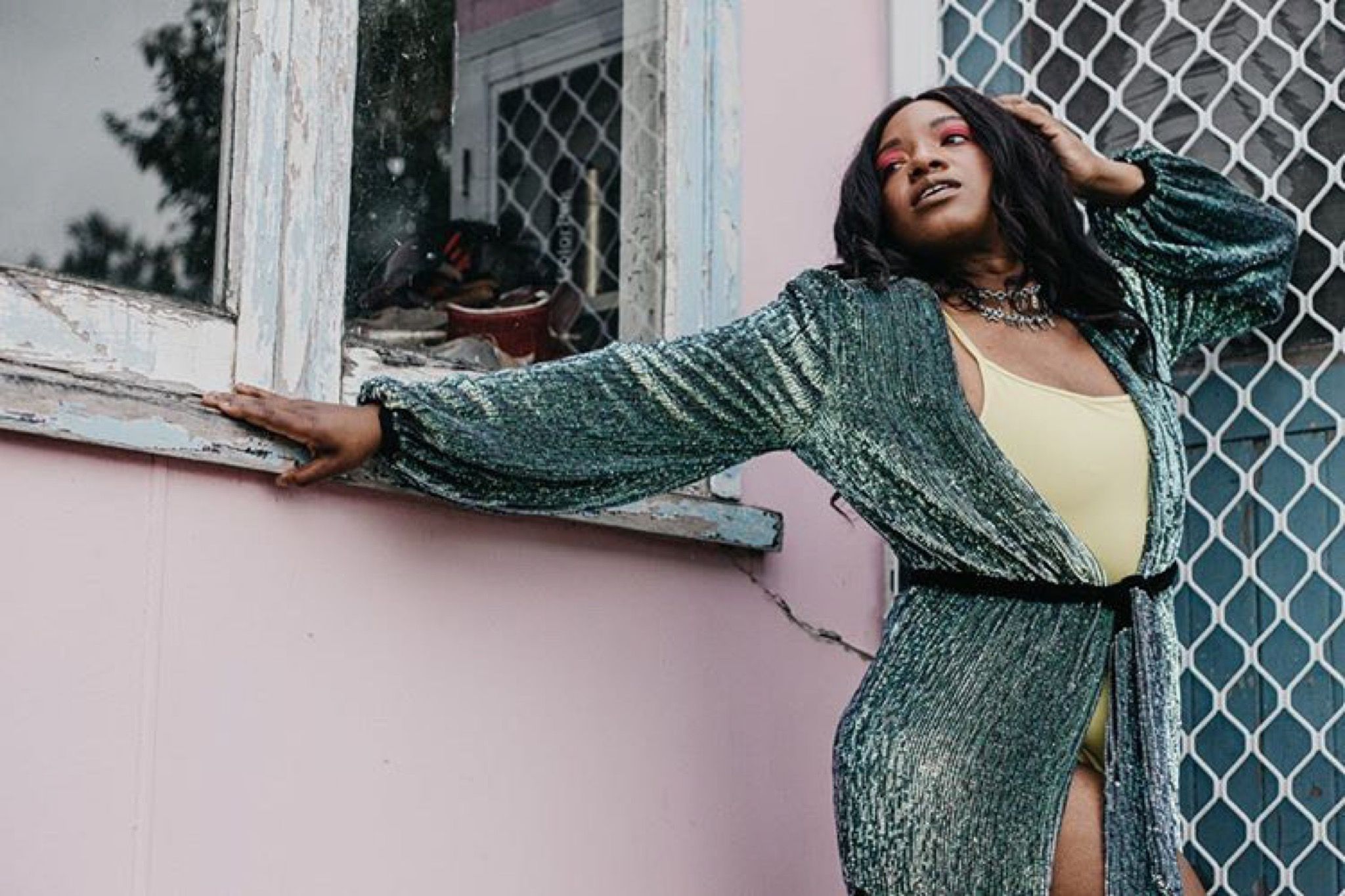
“The more invested you are in your community, the longer it’ll be around, no matter the circumstances.”
In the past, you have spoken about viewing the dance floor as a place to be liberated from the stress of the world outside. How do you think Coronavirus will impact the way that people relate to the club?
I’ve been thinking about that for a while. I personally feel like the community that enjoys the club environment is experiencing a lot of growth right now, because we all know the sacred space that is the dance floor. I appreciate the fact that many of us took it upon ourselves to create a virtual community–– no matter how remotely. I did DJ sets on Instagram, and a few of my friends did, too–– Venus X, Mike Q, and others. Now there are virtual events going on, like Club Quarantäne and this Instagram chain I was part of, called Club Rona, which was really dope. One of the DJs on Hot97, DJ Wallah, even participated. A lot of people tuned in, and seeing that energy gives me hope that they still appreciate the job that a DJ does as a curator of space, especially safe spaces.
I have hope that we’ll be able to take in the safety precautions and have conversations with the places that we invest in. I really appreciate that Frankie [Hutchinson] from Discwoman started working at Bossa [Bossa Nova Civic Club] because we always throw parties there, so why shouldn’t she invest in it? Hopefully we have more situations like that, so that clubs appreciate the people that fill their spaces and so that the spaces can exist whether there’s a disaster or not. A lot of clubs are in trouble right now, they’re possibly either closing because they can’t make rent or they’ll have to fire staff. The more invested you are in your community, the longer it’ll be around, no matter the circumstances.
As far as people partying in spaces–– I feel like everybody is really thirsty to go to a party. That first party is going to be insane, but I also feel like a lot of spaces are going to be more intimate. I don’t think we’ll see large-scale events until maybe late next year, possibly. Just because they haven’t figured out how to apply the basic safety precautions on a whole, and it takes a lot for people to understand that this is the new way that we have to go about. I was very vocal on the internet before the lockdown, because I knew that the clubs were going to close because they had closed across Asia. I was telling my friends when I came back from my tour in February like, “Yo–– in March, stuff is gonna close, and you should be prepared for that. If you have a tour, you shouldn’t go.” I was pre-warning whoever follows me that they should be prepared with food because the government had said two weeks, but I knew it was going to be longer than that. And now, look–– they’re about to impose laws saying we can’t even leave the house. I already knew that was coming as well, because my peers in Asia who I was supposed to play with had experienced the same things.
I personally haven’t really been following the news like that, anymore. I did for the first two weeks, to update myself on what was going on internationally, but now I’m more worried about my community–– my city of Newark–– and what is going on here. I feel more comfortable knowing that my friends overseas have lived through something that I am about to experience. Those politicians aren’t going to experience what we are going through with this COVID pandemic, you know what I mean? They’re in the White House, like, being white.
And old.
Right. But we’re young! And we hope for a healthy and stellar future. I’ve just been following my peers. Unfortunately, they all have better governments, so it’s still going to be different for us in the States. But it gives me hope.
“I really do feel like after Corona it’s going to be a New Age, I feel like our generation is so ready to overthrow old laws–– it’s time for a reset on everything.”
We’re seeing a lot of music releases that reflect on our shared predicament. The other day Tierra Whack released a song, “#STUCK,” and UK drill artist, Psychs made a viral splash a few weeks ago with the song “Spreadin’ (Coronavirus).” Are there other examples that you have seen in the past weeks that have spoken to you?
Now, you know we love Beyoncé, but she has got to give us an Instagram Live show. Like, Sis, what are you doing? We’ve seen everybody go Live, Scott Storch just went Live–– and he wrote for Beyoncé. But Beyoncé, you know, she be tryna peasant us sometimes.
I feel like this situation humbled a lot of celebrities and made our idols human. Everybody’s realizing that no matter how much you may have on the internet, regardless of your status as an artist in general, you’re in the same predicament as everyone else. You’re back to square one, you’re limited to the screen to get yourself out there.
Is there anything specific that you hope to see as a product of this time?
I think a lot of collaborations could come out of this. I’m honestly really proud of how many DJs have stepped up to stream, and also of how many DJs have their own equipment at home. Invest in the craft! It was dope to see the creative performance community do what they do best: entertain and help relieve people of different stressors.
Real artists will survive, because we don’t need all that extra stuff to create. I really do feel like after Corona it’s going to be a New Age, I feel like our generation is so ready to overthrow old laws–– it’s time for a reset on everything. The music industry was already headed toward one, because the way that independent artists are moving is like, “we don’t even need y’all big labels anymore,” and the labels know it. Independent artists are kind of blessed right now, in that they control their income. I don’t have to worry about a label, or paying anybody. The music industry is not stopping, it’s just not live for now. So I definitely think it will be a reset.
We need new laws, history books need to be updated and rewritten. Where’s the Black stuff? Where’s the POC stuff? Where’s the Queer stuff? Hopefully that will be possible to address, with the most peaceful outcome. The revolution will be on Instagram Live.
Credits
- Interview: Octavia Bürgel
